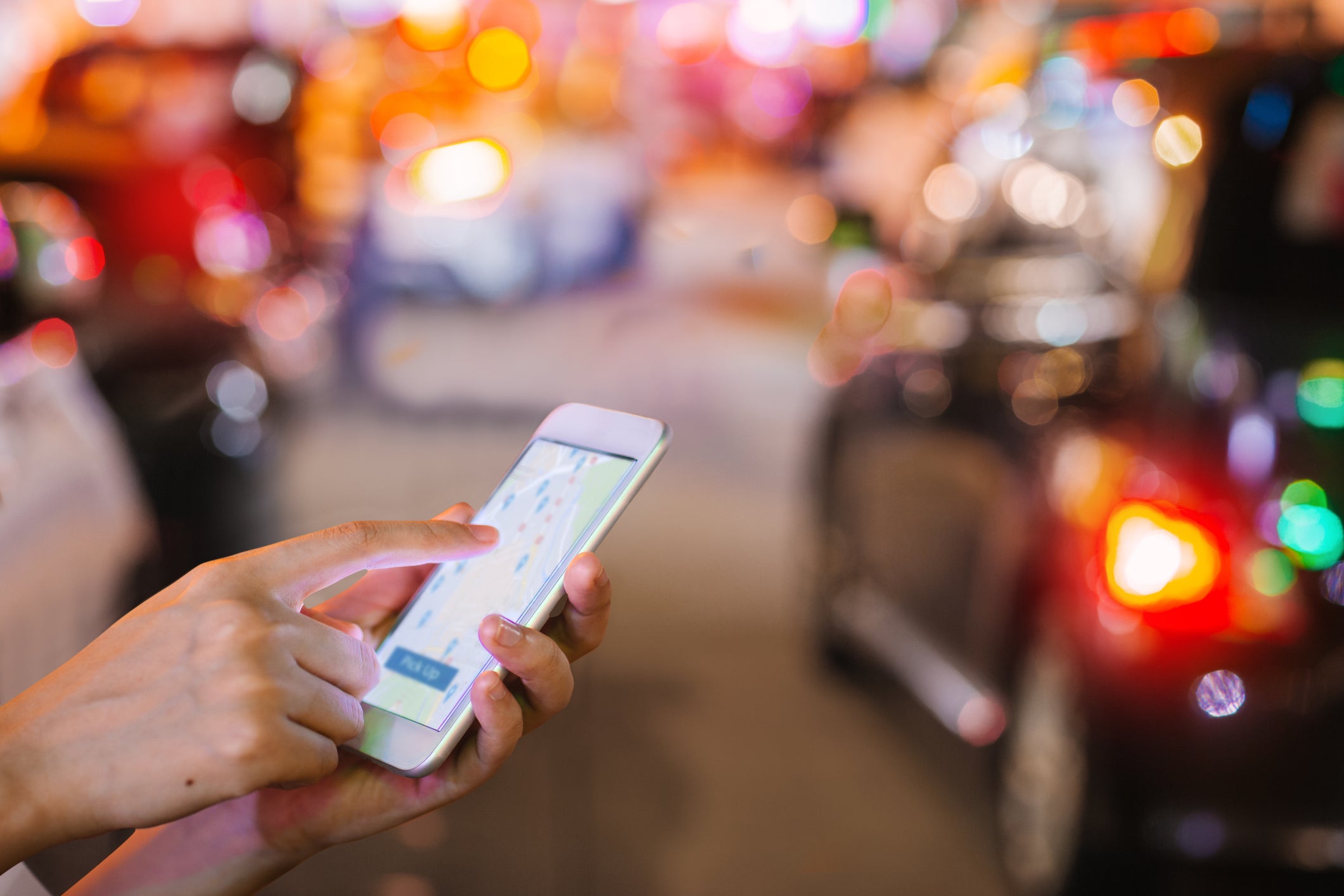‘Women spend far more than men do getting home’: The impact Uber’s price surge may have on safety
As the ride-hailing app boosts London prices by 10 per cent, Olivia Petter examines how women’s safety could be affected


Picture the scene. You’re on the street, late at night, trying to figure out how to get home. There’s a night bus that can take you some of the way, but you’d have to walk at least a mile afterwards on a quiet residential street. There’d usually be the Night Tube, but that doesn’t start again until the end of the month, and the limited lines make it hard to plan a route.
Thank goodness, then, that there are taxi apps, which you can hail to wherever you are in a matter of minutes. But wait: there aren’t any drivers available. Oh, hang on, you’ve found one; he has four stars and is seven minutes away. After two, he has cancelled. It’s 3am, and you’re alone.
To any woman living and going out in London, this will be an all too familiar experience, one that has become particularly concerning this year following the deaths of Sarah Everard and Sabina Nessa, who were both killed after walking at night in the capital.
And yet, it seems to be happening more and more. There are numerous reasons for this. The first is that many minicab drivers, including those who work for Uber, have quit the industry during the pandemic, as demand disappeared.
Now, however, demand has risen beyond levels that companies can meet due to more people returning to normal life post-lockdown, and going out and socialising.
According to Uber, requests for taxis have increased by almost 20 per cent in London, which would require the firm to employ roughly 20,000 more drivers in order to resume regular service levels.
Meanwhile, one of Uber’s key competitors, Bolt, has said it has seen a 300 per cent surge in searches in some cities in the last six months.
As a result, Uber is trying to lure drivers back to its platform by increasing its rates by 10 per cent in London.
The rise will come into effect from Thursday 11 November and will also see a 15 per cent surcharge applied at peak times for rides to airports, such as Heathrow and Gatwick.
An Uber spokesperson said: “We’re making these changes to help provide a better rider experience by signing up more drivers to meet the growing demand. We know people rely on Uber to book a safe trip around London and this small fare increase will help reduce wait times. As always, riders will get a fare estimate before booking their journey.”
While bringing back more drivers should help make it easier to find an Uber, it won’t help those who can no longer afford to pay for one due to the price increase, and could leave many women feeling unsafe on their journey home.
A spokesperson for women’s safety campaigners, Reclaim These Streets, told The Independent that Uber’s surge could have an adverse effect, particularly for women who already feel unsafe on public transport at night.
“Whether or not Uber exists and regardless of what they charge, women don’t feel safe making their way home of an evening,” they said.
“It’s wrong that we have to shell out for a taxi because male behaviour on public transport and in public spaces makes us and makes us feel unsafe.
“The burden to keep safe includes our Uber bills. We spend far more, I’m sure, than men do getting home.
“Why should that burden be on women? Yes, Uber prices increasing increases that burden for us. But tackling misogyny not cheaper taxis is the only way we will ever be safe.”
According to data from the Office for National Statistics (ONS), around 49 per cent of women do not feel safe walking alone after nightfall in a busy public place, such as a high street or railway station.
The same proportion of women also felt unsafe walking alone on a quiet street near their homes at night.
In comparison, one in five men (19 per cent) said they felt unsafe when walking alone in a busy public area after dark. This fell to 15 per cent among men walking alone on a quiet street near where they live.
Meanwhile, in 2020 YouGov released data that revealed that more than a third (39 per cent) of women have been victim to some kind of unwanted sexual behaviour on public transport.
The most common type of incident – experienced by more than a third of women (37 per cent) and 12 per cent of men – was a stranger deliberately pressing themselves up against a person.
A spokesperson for Uber commented: “We know people rely on Uber to book a safe trip around London and this small fare increase will help reduce wait times by bringing more drivers onto the app.”
With regards to safety, they added: “With more than five million people using the Uber app across the UK, there is nothing more important than the safety of riders and drivers.
“Before they can register to use the Uber app, all drivers in the UK must be licensed for private-hire, which includes an enhanced DBS background check.
“Over the last three years we have launched a range of new safety features, including an emergency assistance button, our first-ever 24/7 support phone centre and the ability to share your live journey with loved ones.”






Join our commenting forum
Join thought-provoking conversations, follow other Independent readers and see their replies
Comments